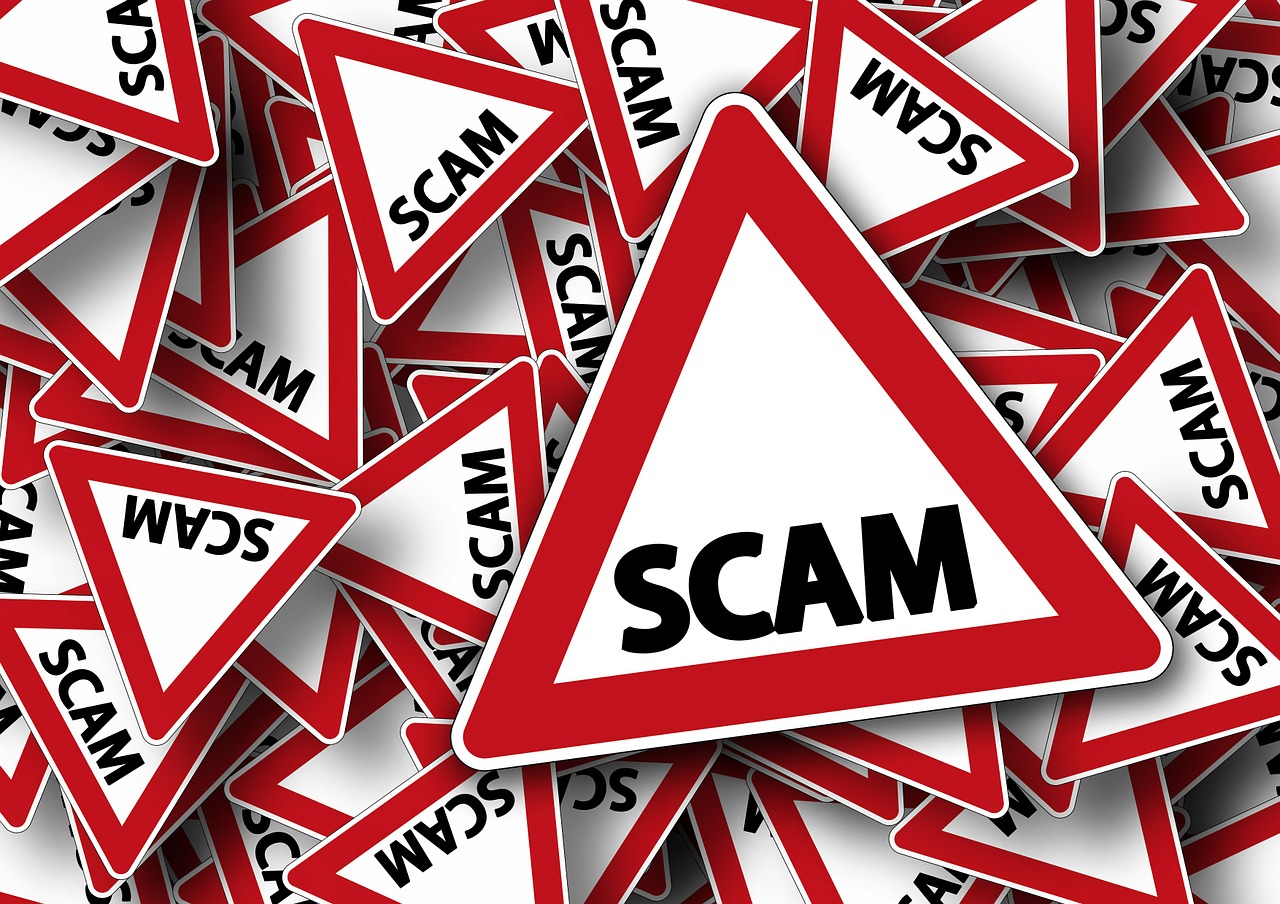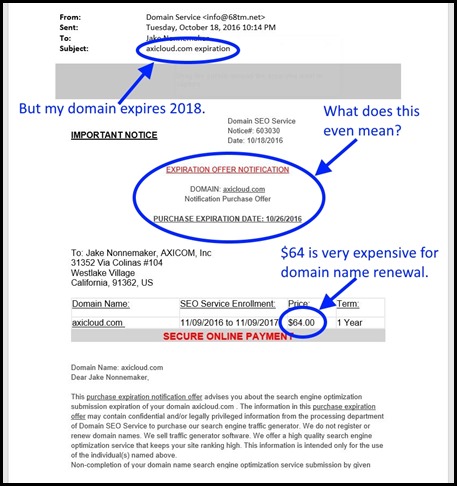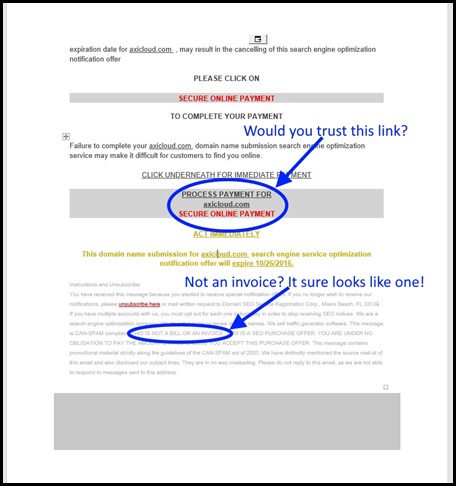Eric received an email notice that his company’s domain name is expiring. The email appeared to be an offer to renew his company domain name via a ‘Secure Online Payment’ for $64. He sensed a scam.
“I recalled renewing it just over a year ago for a 5-year term,” recalled Eric. “That’s why I thought this notice was odd. It said that my domain was expiring in a month and that’s what made me suspicious.”
This domain name service registration scam, also called “domain slamming”, targets small business owners who generally have only a vague notion about how domain names work and their renewal dates. Domain name registration is important because it is required for your website and email to function and to maintain your brand identity.
But there is a lucrative business if scammers can trick business users to transfer their domain names to their service or dupe them into subscribing to SEO (search engine optimization) services that they don’t need or want.
These scammers will first send you a spam email or physical letter stating that your domain is about to expire and will try to get you to click on the payment link or email an invoice. Below is a typical spam message from “Domain SEO Service” attempting to get the business owner to believe his domain is expiring and that the message is a renewal invoice. But when one reads the fine print in light gray at the end , it becomes apparent that they are actually selling SEO services.
How to Avoid Domain Name Scams
1. Know who your domain registrar is.
Usually you can find this information at https://whois.net. Just submit your domain name (e.g., mydomain.com) and WhoIs.net will return your registrar is. If you have an assistant or office manager, you will want to make sure they have this information. Popular domain name registrars in the United States include GoDaddy, Network Solutions, Register.com, 1&1, Tucows, enom and DreamHost.
2. Keep track of your domain name renewal date.
You can find this information as well at https://whois.net. A good tip is to create a recurring calendar appointment that will remind you a month before your domain expires and gives you time to renew it. Keep your assistant or office manager aware of the renewal date as well.
3. Lock Your Domain Name.
Most registrars have a free feature to lock your domain name account to prevent unauthorized domain name transfers or changes. You can enable this feature by going to your registrar account and setting the lock. You can also call your domain name registrar and they will be glad to help.
4. Never give anyone access to your registrar account.
If your domain name is locked to protect it against transfer, the scammer may try to get you to unlock it, approve domain transfer or give them the transfer authorization code. Never give them this information or allow them access to your account which would allow them to steal your domain.
5. Ask your IT service provider for help.
If you have any questions about your domain name registration, just ask your IT service provider. AXICOM keeps a record of domain name registration renewal dates as a courtesy to our customers and notifies them when their renewal period is approaching. You many want to ask your IT service provider if they would do the same.



